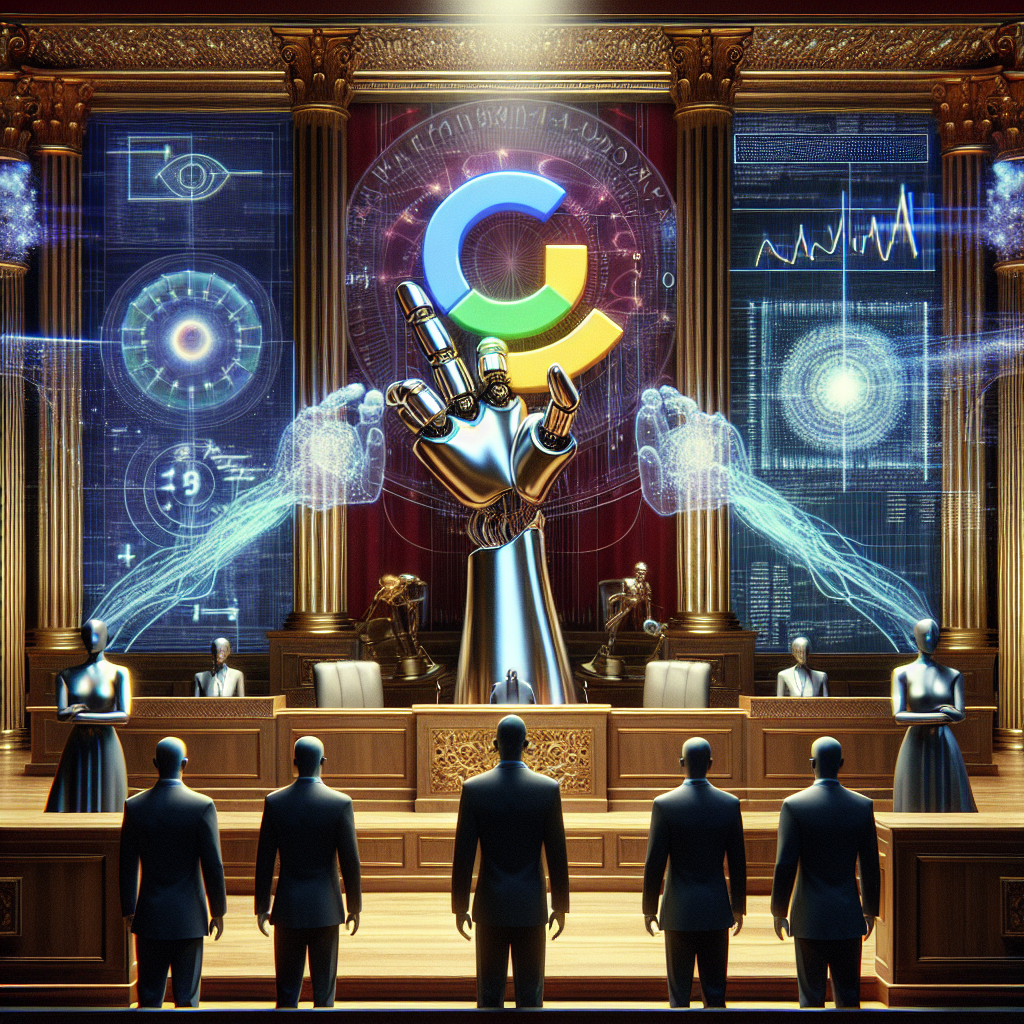How Google’s Antitrust Case Could Upend the A.I. Race
The ongoing antitrust case against Google has triggered significant discussions about its potential implications for the rapidly evolving artificial intelligence (A.I.) landscape. As governments and regulatory bodies around the world examine the monopolistic practices of tech giants, the results of this case could redefine competition in the A.I. sector, shaping the future of innovation, accessibility, and ethical standards.
The Context of the Antitrust Case
The antitrust lawsuit against Google, spearheaded by the U.S. Department of Justice (DOJ), primarily accuses the tech giant of engaging in anti-competitive practices that stifle competition in the search and digital advertising markets. This case marks one of the most significant legal battles involving a technology company in recent years.
The crux of the matter revolves around the assertion that Google has engaged in practices that not only maintain its dominance but also hinder potential competitors from emerging. Such practices include exclusive contracts with device manufacturers and agreements that limit the distribution of competing search engines. The potential implications of these actions stretch far beyond the realms of search and advertising; they reach into the burgeoning A.I. industry.
The Interplay Between Antitrust and A.I.
Artificial intelligence relies heavily on vast datasets and powerful computing resources. As a leader in both search and advertising, Google possesses an unparalleled amount of data that can be leveraged to train A.I. systems. This monopoly on data access is a critical factor that could influence the trajectory of A.I. development.
The antitrust case against Google raises essential questions about:
1. Data Accessibility: If Google is forced to change its data practices, it could lead to a more equitable distribution of data among competitors, ultimately benefiting the A.I. landscape.
2. Innovation: A decrease in Google’s control could spur innovation by providing smaller companies opportunities to develop new A.I. technologies without being overshadowed by Google’s resources.
3. Ethical Standards: As competition increases, there may be a greater emphasis on ethical considerations in A.I. development, which could lead to more responsible A.I. technologies.
Potential Outcomes of the Antitrust Case
The outcome of the antitrust case could manifest in several ways, each with unique implications for the A.I. field:
1. Structural Changes: If the court mandates structural changes to Google, such as divestiture of certain assets, this could lead to a more fragmented tech landscape. Such fragmentation may foster increased competition, resulting in innovative A.I. solutions from previously marginalized companies.
2. Increased Scrutiny: Should the case succeed in exposing anti-competitive practices, it could set a precedent that subjects not only Google but other tech giants to closer scrutiny. This might encourage a more diverse set of competitors to enter the A.I. market.
3. Regulatory Framework: The case may prompt lawmakers to consider more robust regulatory frameworks for the tech sector. New regulations could address issues of data privacy, competition, and ethical A.I. development, potentially reshaping how A.I. technologies are created and deployed.
4. R&D Investment Shifts: As competitors sense an opportunity, we may observe a shift in research and development investments. Smaller companies and startups could receive more funding, leading to a renaissance of innovation in the A.I. sector.
The Global A.I. Race
The implications of the antitrust case are not confined to the United States. Countries worldwide are in a race to harness A.I.’s potential, with many governments investing heavily in A.I. research. If Google’s dominance is challenged, it could shift the global A.I. dynamics, giving rise to new leaders in the tech space.
As nations strive for technological supremacy, they are also grappling with ethical considerations surrounding A.I. technology. The antitrust case could serve as a catalyst for developing a cohesive global approach to A.I. standards, encouraging nations to collaborate on ethical guidelines and safety regulations.
Challenges and Considerations
While the potential positive outcomes of the antitrust case are exciting, there are challenges to consider:
– Long-Term Impact: The legal process can be lengthy, and the immediate effects of the case may not be felt for years. Even if the case results in significant changes, the path toward a competitive A.I. market may be convoluted.
– Market Dynamics: The tech landscape is constantly evolving. New players may emerge, and existing companies may pivot in response to changing market conditions, making it challenging to predict the long-term effects of the antitrust case.
– Ethical Dilemmas: As competition increases, there is a risk that some companies may prioritize profit over ethical considerations, leading to potential misuse of A.I. technology. Striking the right balance between innovation and ethical responsibility will be crucial.
Conclusion
The ongoing antitrust case against Google represents a pivotal moment for the tech industry, particularly in the realm of artificial intelligence. As the case unfolds, the potential outcomes could reshape the competitive landscape, influence regulatory approaches, and redefine ethical standards in A.I. development.
While the challenges ahead are significant, the prospect of a more equitable and innovative A.I. market is an alluring goal. The implications of this case extend far beyond the courtroom; they could resonate throughout the global tech ecosystem, fostering a new era of A.I. that is accessible, diverse, and responsible.
As we watch the proceedings closely, one thing remains clear: the intersection of antitrust law and artificial intelligence will continue to evolve, and its outcomes will significantly impact the future of technology and society as a whole.



